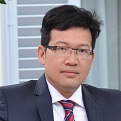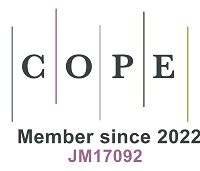
School of Social and Environmental Development, National Institute of Development Administration, Bangkok, Thailand.
HomePage
Bio
Siwatt Pongpiachan received financial supports from Thai government, Japan Society for the Promotion of Science (JSPS), and the Ministry of Education, Sport and Culture, Japan, for conducting his researches as a part of B.Sc. and M.Sc. degree. In 2006, he finally obtained his PhD in Geography, Earth & Environmental Sciences, School of Geography, Earth & Environmental Sciences Division of Environmental Health and Risk Management, The University of Birmingham, United Kingdom. He then spent five years as a lecturer at the Faculty of Environmental Management, Prince of Songkla University, Thailand. His work there lied within the field of climate change and extend from fundamental studies of marine chemistry on the one hand through to carcinogenicity of gaseous and airborne fine particulate persistent organic pollutants (POPs), particularly polycyclic aromatic hydrocarbons (PAHs), alkanes, hopanes and cholestanes at the other extreme. In 2006, he was granted from UNESCO for conducting collaboration research with Hong Kong Polytechnic University under the title of “Source Apportionment of polycyclic aromatic hydrocarbons (PAHs) and the effects of soot particle on gas-particle partitioning of PAHs”. In 2007, he was sponsored by National Research Council of Thailand to study characteristic of atmospheric profile and its effects on variation of air pollution in Thailand (CAPE). In the same year, he was also financially supported by DFG (Deutsche Forschungsgemeinschaft) on Thai-German Cooperative Research and Capacity Building: Ocean Geoscience, Marine Ecology and Engineering for Natural Hazard Management and Sustainable Use of Marine Resources: Tsunami Deposits in Near-Shore and Coastal Waters of Thailand (TUNWUT).
In 2010, he was granted from Institute of Earth Environment, Chinese Academy of Sciences, Xi’an, China to conduct two researches under the titles of “Long Term Observatory of PM2.5 in Bangkok Atmosphere (LOPBA)” and “Intensive Monitoring Campaign of PM2.5 at Northern Region of Thailand at Multiple Sampling Sites during Forest Fire Episode (IMPRESS)”. In 2011, he was selected by United Nation Industrial Development Organization (UNIDO) and Pollution Control Department (PCD) as a national project manager to responsible for demonstration of Best Available Technique (BAT) and Best Environmental Practice (BEP) in fossil fuel-fired utility and industrial boilers in response to the Stockholm Convention on Persistent Organic Pollutants (POPs) in Thailand. He is an active international scientific advisory committee of Wessex Institute of Technology (WIT), United Kingom, responsible for air pollution session. He also works with several private sectors such as IRPC Co. Ltd, Bara Scientific Co., Ltd, Fujitsu Thailand Co., Ltd and Nissui Thailand Co., Ltd. In 2013, he received a postdoctoral certificate from Institute of Earth Environment, Chinese Academy of Science (CAS) under the supervision of Prof. Dr. Junji Cao. At present, Dr. Siwatt has surved as an associate professor and a director of NIDA Center for Research & Development of Disaster Prevention & Management, School of Social & Environmental Development, National Institute of Development Administration (NIDA), Thailand since 2010.
Research Interests:








